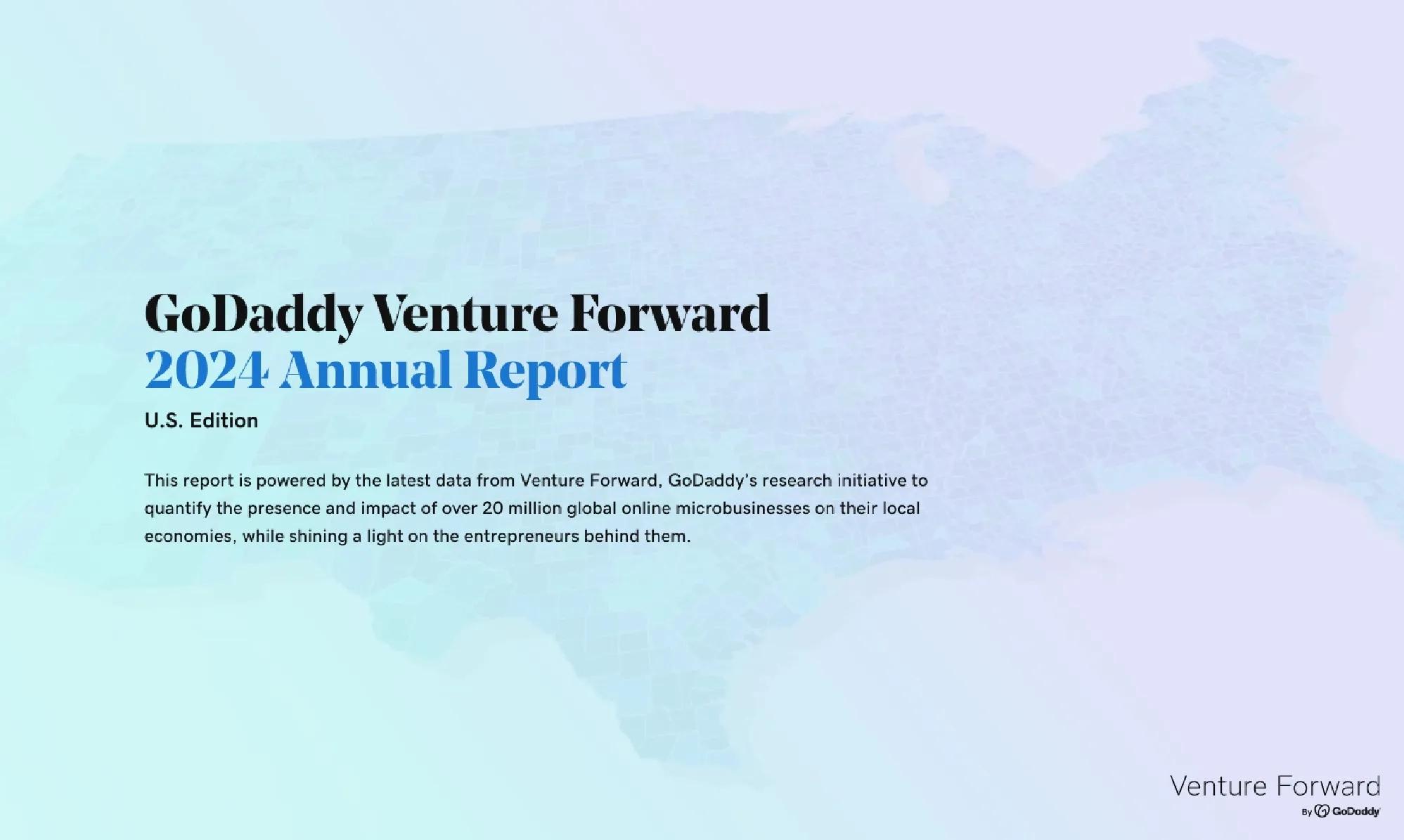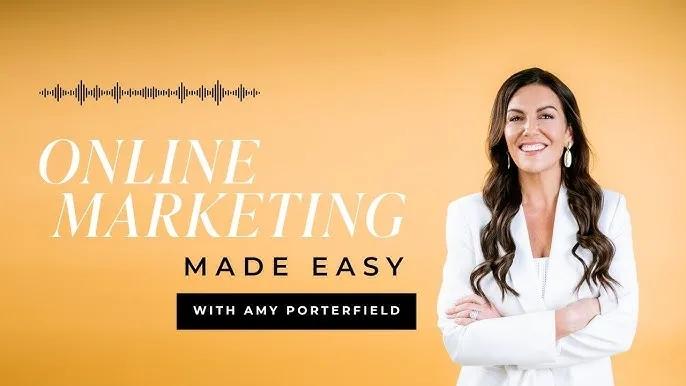In 2007, I made the decision to start my own business. And goodness knows I made a lot of mistakes along the way. Many times, I’ve wondered if I had what it takes to be an entrepreneur. Perhaps you can relate.
Well, if you want to know how to make it as an entrepreneur in 2025, buckle up. I’ve done my homework, and now I’m spilling all the knowledge I gathered for you to determine if it’s right for you.
Let’s dive in!
What is entrepreneurship?
Entrepreneurship is the process of starting and running your own business. But let’s be real – it’s so much more than that.
Entrepreneurship is having the guts to take your wild ideas and turn them into something real.
It’s looking at a problem and thinking, “You know what? I can fix that.” And then actually doing something about it.
And the best part about starting your path of entrepreneurship in 2025? There are more ways than ever to make money. Whether you’re dreaming of opening a brick-and-mortar shop, launching an ecommerce empire from your living room - though I admit ecommerce can take time to make strong profits! - or turning your side hustle into your main gig, there’s a path for you.
But here’s the thing – entrepreneurship isn’t just about making money (though that’s definitely a nice perk!). It’s about creating something meaningful, solving problems, and maybe even changing a little corner of the world. And sometimes, it’s about failing spectacularly, picking yourself up, dusting yourself off, and trying again.
Trust me, I’ve been there. I remember when I first started in 2007. There were moments when I seriously questioned my life choices, and thought about going back to a 9 to 5 job. But you know what? Those moments taught me more than any business class ever could.
What it’s like to be an entrepreneur
Want to know what being an entrepreneur is really like? Imagine riding a roller coaster… blindfolded… while trying to do your taxes and take care of accounts payable and receivable all at the same time. Yeah, it’s kind of like that.
Some days, you’re on top of the world – you just landed a huge client, your social media post went viral, or maybe you finally figured out how to make your accounting software behave.
But other days? Well, let’s just say there are moments when a regular 9-to-5 starts looking pretty good.
The good stuff

According to the GoDaddy Venture Forward 2024 Annual Report, entrepreneurs are feeling more optimistic than they have since 2020. And I get why!
Here’s what we’re seeing:
- More tools than ever to help us succeed (hello, AI assistants!)
- Growing opportunities in digital markets (because who doesn’t shop online these days?)
- Increasing support for small businesses (finally! Am I right?)
Plus, there’s nothing quite like the freedom of being your own boss.
Want to work in your pajamas? Go for it.
Need to take a Wednesday afternoon off for your kid’s soccer game (or just because you need a day off due to entrepreneur burnout)? You can do that.
Just remember – with great power comes great responsibility.
The not-so-good stuff
Now, let’s get real for a minute. Being an entrepreneur isn’t all Instagram-worthy coffee shop work sessions and inspirational LinkedIn posts. Though believe me, I wish it was!
Here’s what they don’t show you in those #entrepreneurlife photos:
- The 3 AM panic attacks about cash flow uncertain whether or not those invoices you sent out to clients will be paid before rent is due
- The awkward family dinners where you have to explain (again) why you left your stable job of 40 hours a week to work closer to 100 hours a week with no guaranteed pay
- The days when you’re the CEO, janitor, IT department, and customer service rep all at once
- The constant battle with impostor syndrome
I remember one particularly fun week when I got crazy sick, then my laptop died, my biggest client ghosted me, and my car broke down.
I may or may not have spent an evening crying while shoveling Reese’s peanut butter cups in my face and considering calling it quits. I even remember opening Indeed and Monster and scrolling through all those career websites to see if anything could save me.
But you know what? I remembered I wanted to build my dreams, not the dreams of an employer… So, I got through it. And that’s what entrepreneurship is really about – continuing to put your foot on the gas even when the road gets tough.
It’s different for everyone
Here’s something I’ve learned after talking with countless other entrepreneurs: no two journeys look exactly alike. Some folks hit it big with their first idea (lucky ducks), while others – like me – take a more, let’s call it a scenic route to success.
The point is, your entrepreneurial journey is going to be uniquely yours. And that’s exactly how it should be.
What it takes to make it as an entrepreneur
Do you have what it takes to be an entrepreneur? (Spoiler alert: Probably!)
I’m going to let you in on a little not so secret-secret: there’s no such thing as the “perfect entrepreneur.” Let’s take a look at what actually matters in 2025.
I’ve met hundreds of entrepreneurs over the last 17 years of running my own business, and you know what? They’re all different. Some are loud and outgoing (guilty!), others are quiet and analytical. Some started with full-on college degrees (like me!), others learned everything through good old-fashioned trial and error.
The cool thing is, the characteristics of a successful entrepreneur aren’t set in stone – they’re more like muscles you can build over time. Trust me, I was terrified of public speaking when I started. Now? I still get butterflies, but I’ve learned to take the mic anyway.

| Here are the key characteristics I’ve seen make the difference between just dreaming and actually doing: |
|---|
| Passion Without it, you might as well go back to your 9-to-5. Why? Because it’s what gets you through those midnight oil-burning sessions and keeps you going when everyone else thinks you’re crazy. Trust me, some members of my family thought I’d lost it when I first started, but passion kept me pushing forward. |
| Strong communication skills Whether you’re pitching to investors or explaining your vision to your would-be clients, you’ve got to get your point across clearly. And no, sending emoji-filled texts doesn’t count as professional communication (ask me how I know!). |
| Creative thinking This isn’t about being the next Picasso – it’s about finding solutions where others see dead ends. I once turned a massive article failure into one of my most helpful posts just by looking at it through a different lens. |
| Resilience Remember my Reese’s peanut butter cup therapy session I mentioned earlier? That’s resilience – the ability to bounce back when life throws you curveballs. And trust me, in business, it’s going to throw a lot of them at ya. You’ll constantly be learning from business challenges! |
| Strong work ethic Success rarely happens overnight (despite what those Instagram ads and side hustle TikTok videos tell you). You’ve got to be willing to put in the hours, especially at the beginning. But here’s the key – work smarter, not just harder. |
| Vision You need to see where you’re going, even when others don’t get it yet. A friend of mine once told me, she wanted to have the biggest hot sauce company ever. She constantly talked about where she wanted the company to go, and often said, “I don’t need to see the final destination on the map. I just need to see the six feet in front of me and I know I’ll get there.” |
| Flexibility The business world moves fast. You’ve got to be ready to pivot when needed. Remember how many businesses completely reinvented themselves during the pandemic? That’s adaptability in action. |
| Now, let’s talk about the entrepreneurial mindset – because trust me my friend, this is where the magic happens. Here’s what keeps successful entrepreneurs going in 2025: |
|---|
| Building confidence Let’s tackle those confidence gremlins head-on. Start by celebrating small wins (yes, even getting your first business card counts). When impostor syndrome kicks in – and it will – remember that even the biggest success stories started somewhere. Focus on what makes you unique, learn from others but don’t copy them, and remember that “fake it till you make it” is actually a legitimate strategy. Most importantly, have a plan for your finances so money worries don’t eat away at your confidence. |
| Developing resilience Here’s the truth about entrepreneurship – you’re going to fail. Maybe a little, maybe a lot, but it’s going to happen. The key is learning to see these failures as feedback. Keep a “lessons learned” journal/document (mine is filled with some doozies), build a support network that gets it, and remember that every “no” gets you closer to a “yes”. Also, don’t forget to celebrate those failures – they mean you’re actually out there trying. |
| Maintaining focus With a million things demanding your attention, focusing on your goals is the only way forward. Learn to prioritize like a pro (“Will this matter in a year?”), set clear boundaries (not every email needs an immediate response), and keep your eye on the big picture even while dealing with daily details. |
The beautiful thing about all of this? Every single one of these characteristics and mindset traits can be developed. You don’t need to be born with them.
For example, I started out as a nervous wreck who could barely make a phone call without scripting it first. Okay fine, I still do this. But now I also can record an entire podcast episode (with a guest!) or teach a masterclass with less struggle than I did in the beginning.
Remember when we discussed the definition of entrepreneurship earlier. I’ll add to it that it’s not about being perfect – it’s about being perfectly willing to grow and learn.
Types of entrepreneurship you can pursue
Alright, gather ’round because I’m about to share something that blew my mind when it clicked for me: There’s more than one way to be an entrepreneur. Mind. Blown.
Yep, you don’t have to have a brick and mortar business. You can run a mobile company. You don’t even need a website to start earning money - though you really should have a website.
The truth is you can make money in so many ways as an entrepreneur.
Let’s break down the most common types of entrepreneurship for 2025:
Small business entrepreneurship
This is what most people think of when they hear “entrepreneur” – your local coffee shop owner, that amazing hair salon down the street, or yes, even a freelance writing business. It’s about creating something that serves your community and (hopefully) pays your bills.
This path can be incredibly rewarding, but it usually takes longer to scale. My first year? I had to take a part time job to keep the lights on.
Digital nomad entrepreneurship

Thanks to the work-from-anywhere revolution, this type has exploded. Digital nomads run their businesses from anywhere with decent WiFi. I’ve got a friend who runs his entire content marketing agency from an RV (yes, really), and he’s crushing it.
Pro tip: Start with a home base before you go full nomad.
Trust me, trying to figure out business logistics while also hunting for reliable internet on the road is not fun.
Social entrepreneurship
Want to make money AND make the world better? This is your jam. Think companies like TOMS Shoes or Patagonia – they’re making bank while making a difference.
Doing good can be good for business. People like to connect to companies that are giving back to their communities. And, if you do plan to start hiring help one day, people like working for companies that are doing good in the world.
Scalable startup entrepreneurship
This is for those dreaming big – like, “I want to be the next Airbnb” big.
This usually involves:
- Getting investors excited about your idea
- Building something that can grow FAST
- Working like crazy for a few years
- Making investments that can ultimately lead to some form of passive income (or at least hiring help to take care of stuff for you)
Franchise entrepreneurship
You could consider this to be entrepreneurship with training wheels. You get a proven business model, support, and a recognized brand. The catch? You have less creative freedom and have to play by someone else’s rules.
Buyer entrepreneurship
Why build from scratch when you can buy something that’s already working? This is about finding existing businesses that need some TLC, buying them, and making them better. My favorite entrepreneur to learn about buying businesses from is Codie Sanchez. Just me?
Personal story: I actually considered this route a couple of years ago. Found a fun blog for sale that would’ve been perfect to grow and scale… until I saw the price tag. Yikes. Way too rich for my blood, and I wasn’t willing to take the risk of getting a loan to purchase it.
But, a friend of mine saw a blog for sale, and did buy it. It took her more than a year to pay off the loan and she took a 9 to 5 job for more than a year to help with the payments - but now, she’s earning consistent income with no boss or loan payments!
Content entrepreneurship
Content entrepreneurship is exploding right now and will continue well into 2025 and beyond. Think YouTubers, newsletter writers, podcasters – folks building businesses around their content. And yes, you can make real money doing this.
One of the entrepreneurs I follow started in real estate and then randomly started a TikTok account with a video about her favorite makeup brand. Through content she now makes more in a week than she did on many of her real estate sales.
Legacy entrepreneurship
This is about building something that’ll outlast you. It’s not just about making money – it’s about creating a lasting impact. Think family businesses or companies with a mission bigger than their bottom line.
Iterative entrepreneurship
Before you say “but copying is bad!” hear me out. This is about taking what works in one market and adapting it for another. Like how we got DoorDash after Uber showed us that food delivery could work through its Uber Eats concept. It’s not about copying exactly – it’s about improving and adapting.
Hybrid entrepreneurship
Here’s something cool about 2025 – you don’t have to pick just one type. Remember when I asked “What is an entrepreneur?” Well, not only is it a person who runs a business, it’s a person who makes their own rules! I know plenty of entrepreneurs who are rocking multiple business models. You can too!
How to get started on your entrepreneur journey
Okay, friend. This is where the rubber meets the entrepreneurship road. You’ve got the entrepreneurial itch, you know what type of business speaks to you, and now you’re ready to… completely freak out about where to start. Don’t worry – I’ve got you!
I get it. It’s really scary to venture out on your own as a business owner. And, not everyone succeeds. But,you can do this. I believe in you.
Let me share the steps I wish someone had laid out for me back when I was just starting my business. And no, none of them involve writing a 50-page business plan or maxing out your credit cards. (Been there, don’t recommend it.)
Step 1: Get used to hearing “no” (without taking it personally)

Let’s start with the tough stuff first. In my first month of business, I heard “no” so many times I started to think it was my new name. But here’s the thing – each “no” is actually bringing you closer to a “yes.”
Quick story: I once pitched a potential client and got shot down so hard I considered sulking back to my soul-sucking day job stuffing envelopes for an insurance agency instead.
Months later, I had so many customers I didn’t know how I would be able to fill all my service orders. I kept going and asking more people if they needed a writer for their website, blog, newspaper (yep - I wrote for newspapers for a while), magazine - anything that needed content!
Pro tips for handling rejection:
- Keep a “wins” folder for nice emails and testimonials
- Remember that “no” often means “not right now.” Many entrepreneurs look at the word no as an acronym for “Next Opportunity!” I personally really like that one.
- Treat each rejection as free market research
Step 2: Test your idea before you bet the farm
Before you quit your day job or sink your savings into fancy business cards, let’s make sure people actually want what you’re planning to sell. In 2025, this is easier than ever.
Here’s how to do it:
- Create a simple landing page (seriously, it can be one page)
- Set up a “coming soon” email list
- Share it with your target audience
- Watch what happens
I cannot stress this enough: If your mom is your only subscriber, you might need to tweak your idea before starting a business.
Step 3: Make friends with AI
Look, I was adamantly opposed to hopping on the AI bandwagon. But in 2023, I had to adapt or literally lose three clients. I’m still working on making friends with the AI overlords, but we’re at least no longer mortal enemies!
Here’s what AI can help you with:
- Writing first drafts of your marketing copy
- Analyzing market trends and research documents
- Managing your social media calendar
- Handling basic customer service questions
Of course, we’ve gotta be real here - AI will still need human oversight. You still need to inject your voice into your brand, and never forget about the human elements required to run your business.
Step 4: Find your people
Remember how I mentioned crying into my Reese’s cups earlier? What I didn’t mention was the random Instagram DM exchange with another entrepreneur friend at 2 AM that helped me get through it. Your support network is everything.
Where to find your entrepreneur besties:
- Local business meetups (yes, they still exist in 2025!)
- Online communities in your industry
- Co-working spaces (virtual or physical)
- Entrepreneur-focused social media groups
- Conferences - some of my best entrepreneur friends I met at conferences!
Personal tip: Find at least one person who’s a few steps ahead of you in business. Their been-there-done-that wisdom is worth its weight in gold.
Step 5: Start small, but think big
You don’t need to have everything figured out to start. My first website was basically digital duct tape and dreams, but it got the job done to showcase my work.
My money mentor Denise Duffield Thomas says that being a business owner is not hard. You just need two things - something to sell, and to make offers to people. That’s it, and she runs a multimillion dollar per year business these days.
I recommend starting with:
- One clear offering
- One target customer type
- One marketing channel
- One goal for your first month
Then build from there. You know the old eating an elephant trope – you do it one bite at a time. (Though maybe don’t use that analogy in your marketing materials.)
Step 6: Get comfortable with being uncomfortable
Here’s something nobody tells you: that feeling of being slightly overwhelmed and not quite sure what you’re doing? It never completely goes away. And that’s okay! In fact, that’s where some of the magic happens.
The truth is as we go into 2025 and beyond, things will move so fast that everyone will need to constantly be learning. The successful entrepreneurs aren’t the ones who know everything – they’re the ones who are willing to figure it out as they go.
Step 7: Set up your digital home base
In 2025, your online presence is everything. But don’t get overwhelmed – start with the basics.
Here’s what I recommend as your first items for your digital home:
- A simple website (your name .com if you can get it!)
- One or two social media platforms (pick where your people actually hang out)
- A professional email address (sorry, sexymama2468@hotmail.com won’t cut it)
As you implement these steps, don’t forget that entrepreneurs need to have self-compassion. You might not figure everything out quickly, and that’s okay. Just don’t give up. If you really want to do this, keep showing up, putting in the reps, and you will find your way forward.
Top 10 resources to start working on your business
Alright, let’s talk resources! And no, I’m not going to tell you to “just Google it” (though let’s be real, we all do that). Instead, I’m sharing the tools and resources that have actually helped real entrepreneurs – including yours truly – get their businesses off the ground.
1. GoDaddy’s “Ready to Be an Entrepreneur?” guide
This video guide breaks down all the nitty-gritty stuff like:
- Knowing your why
- Startup costs
- Vetting your ideas and more
Plus it’s free! And who doesn’t like free?
2. SCORE mentorship program
Want to talk to someone who’s been there, done that, and got the t-shirt? SCORE connects you with retired executives who volunteer their time to help new entrepreneurs. I still meet with my SCORE mentor every quarter, and she’s saved me from many “what was I thinking?” moments.
3. Startup podcasts

Because sometimes you need to learn while doing laundry:
- “Online Marketing Made Easy” with Amy Porterfield (for marketing inspiration)
- “Smart Passive Income” with Pat Flynn (for practical tips)
- “The Side Hustle Show” with Nick Loper (for idea generation)
4. The Small Business Administration (SBA)
I know, government websites aren’t exactly thrilling. But the SBA’s website features helpful business resources – funding options, training programs, and even disaster assistance (which, trust me, you might need someday).
5. GoDaddy’s 30-Day Business Challenge
Want a kick in the pants to get started? This free challenge walks you through launching your business in 30 days.
6. GoDaddy's guide to Navigating the Four Stages of Entrepreneurship
This comprehensive guide breaks down the entrepreneurial journey into four key stages: Dream It, Create It, Grow It, and Manage It. It's built on real experience from millions of entrepreneurs and includes practical advice for each stage, plus insights on crucial elements like connecting with other business owners and maintaining work-life balance.
7. AI tools that actually help
- ChatGPT for content brainstorming
- GoDaddy’s AI website builder (seriously, it’s better than having a web designer on speed dial)
8. Financial tools for people who hate math
Because numbers are important, even if they make your head hurt:
- Wave (free accounting software for small businesses)
- GoDaddy Invoicing (getting paid is important)
- QuickBooks (when you’re ready to get serious about your finances)
9. Mental health resources
Look, entrepreneurship can be lonely and stressful. These have been lifesavers for me:
- Headspace for meditation (because sometimes you need to shut your brain off)
- BetterHelp for online therapy (because your spouse is tired of hearing about your business problems)
- Entrepreneur’s Organization forums (for when you need to talk to people who get it)
10. The ultimate time-saver bundle
These are the tools I use daily to keep my sanity:
- Calendly for scheduling
- Google Sheets for project management (I’ve tried Trello, Asana, and Clickup, but Google Sheets works best for me)
- Loom for quick video messages
Bonus resource: Your own intuition
You can read every book, take every course, and follow every guru out there. But at some point, you’ve got to trust your gut. Your intuition is effectively your entrepreneurial GPS – it might take you on some weird routes, but it usually knows where it’s going.
The bottom line - you can make it as an entrepreneur in 2025
Starting a business in 2025 might seem overwhelming, but remember – every successful entrepreneur started exactly where you are right now: staring at their computer screen, wondering if they have what it takes.
I’m betting if you read through this entire guide, you have what it takes to be an entrepreneur. Just take it one step at a time, use these resources wisely, and don’t forget to step away from your laptop occasionally and, you know, breathe.
If I can do it, so can you. Now get out there and make it happen!






